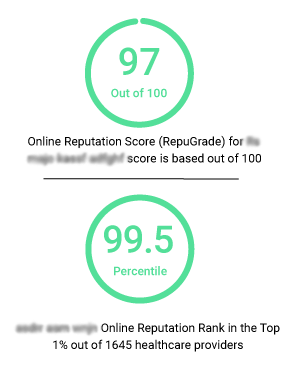Optimizing for Voice Search in 2017
 As voice search continues to become a new dimension of local search, it's time to ask yourself if your site is ready to be optimized for voice search. For some people, it makes life easier to talk to their search engine rather than type words. The more you can stay up to date with search technology, the better chances you have at gaining visibility in search rankings. Here are more reasons to optimize for voice search in 2017.
As voice search continues to become a new dimension of local search, it's time to ask yourself if your site is ready to be optimized for voice search. For some people, it makes life easier to talk to their search engine rather than type words. The more you can stay up to date with search technology, the better chances you have at gaining visibility in search rankings. Here are more reasons to optimize for voice search in 2017.
Voice Search Statistics
How many people use voice search? It's a growing number every day. Twenty percent of Google mobile searches are now done with personal assistants such as Google Home, Siri and Amazon's Echo. Part of the rise of voice search in recent years is due to its increased accuracy of voice recognition software, up to 92 percent. Voice search trends suggest that people are gaining trust in this technology and that website owners see it as an extra way to build a brand and connect with target followers. Another reason for the trend toward voice search is that device makers are bringing this technology to the masses. Google Home is an example of voice recognition technology made available to mainstream consumers. There are now various voice recognition software programs on the market. Voice search was once a novelty, but now it's becoming an essential part of online marketing. The key to optimizing for digital assistants is to create web pages that showcase natural conversations. When you create a Q&A page using natural language it becomes easier for search bots to crawl your site and understand your business niche. It also makes it easier for voice recognition software to respond to questions that web surfers pose when they put keywords in the search box. You must also submit your sitemap to search engines such as Google and Bing. The growth of voice search became evident in 2015 when this new form of search suddenly began making up 10% of all global searches, according to Timothy Tuttle of MindMeld. That equates to about 50 billion voice searches per month. Additionally, Bing announced around the same time that 25% of Bing searches on Windows 10 taskbar were voice searches.
How Voice Search Works
Voice Search is based on software that allows users to interact with software using voice commands. This technology works with various local directories such as Tellme and Yellowpages. Since voice search is often interactive, it may involve the system asking questions for clarification. Google Voice Search can be used by speaking into a mobile phone or computer with a built-in microphone. Now you can ask the search engine about businesses near your location. Google began rolling out its voice search feature in 2011.
Adding Natural Language to Content
The primary way to optimize your site for voice search is to use natural language on key landing pages that can help boost search results. That means using conversational discourse the way people actually speak versus how they type keywords into a search box can enhance making your pages more search-friendly. It helps to use natural language on pages that correspond with keywords that people would use to find your site. It's important to streamline HTML toward structured data, in which you can use Google's Structured Data Markup Helper as a gauge. When people use the search phrase "near me" the results from local directories are based on the physical location of the device. That's why it's wise for businesses to check all their local directory listings to make sure they are up-to-date. When you set up listings in Google My Business and Bing Places for Business make sure that you are as specific as possible about your niche, which helps connect you with searches from your target audience. If you have conflicting addresses on different sites then voice search may not appear in search results. The fact that natural language is important to the success of voice search means you must rethink how you create content. You will need to gravitate more toward long-tail keyword phrases. Popular digital assistants such as Siri, Cortana, Alexa, Google Now and Google Assistant are homes for much of the current voice search activity. A recent MindMeld study found that 60% of U.S. smartphone users who use voice search started using it within the past year. These digital assistants can already have somewhat sophisticated conversations with people.
Analyze Search Queries
Another way to gain an edge in voice search is to study Google's Search Console, which will tell you which search queries bring visitors to your site. At the moment it doesn't distinguish between voice and text searches, but someday the tool may display these results. Even so, it helps to know the exact words people are using to find your site. The more you can replicate how people actually talk about your site, the more you will enable your site to be found through voice search.
Mobile-Friendly Sites Enhance Voice Search
The reason you want to make sure your site is mobile-friendly is that mobile devices are where most voice searches are conducted. If your site is not responsive to the device that accesses it, the user may decide it's a poor experience and never returns. In that sense, mobile-friendly is synonymous with voice-friendly. The reason why it's smart not to ignore smartphone users is they are taking over the marketplace, especially when it comes to consumers deciding on local purchases while on the go.
Conclusion
When you consider how many people use voice search already and how this amount is likely to grow, it makes sense to stay ahead of the game and optimize your site for voice search. Since most searches originate from a mobile device, it's becoming more important than ever to have a mobile-friendly site. Voice recognition software now appears in mainstream tools such as Google Assistant and Google Home, along with Amazon Echo. As voice technology grows, it's advantageous to grow with it.
Comments are closed

